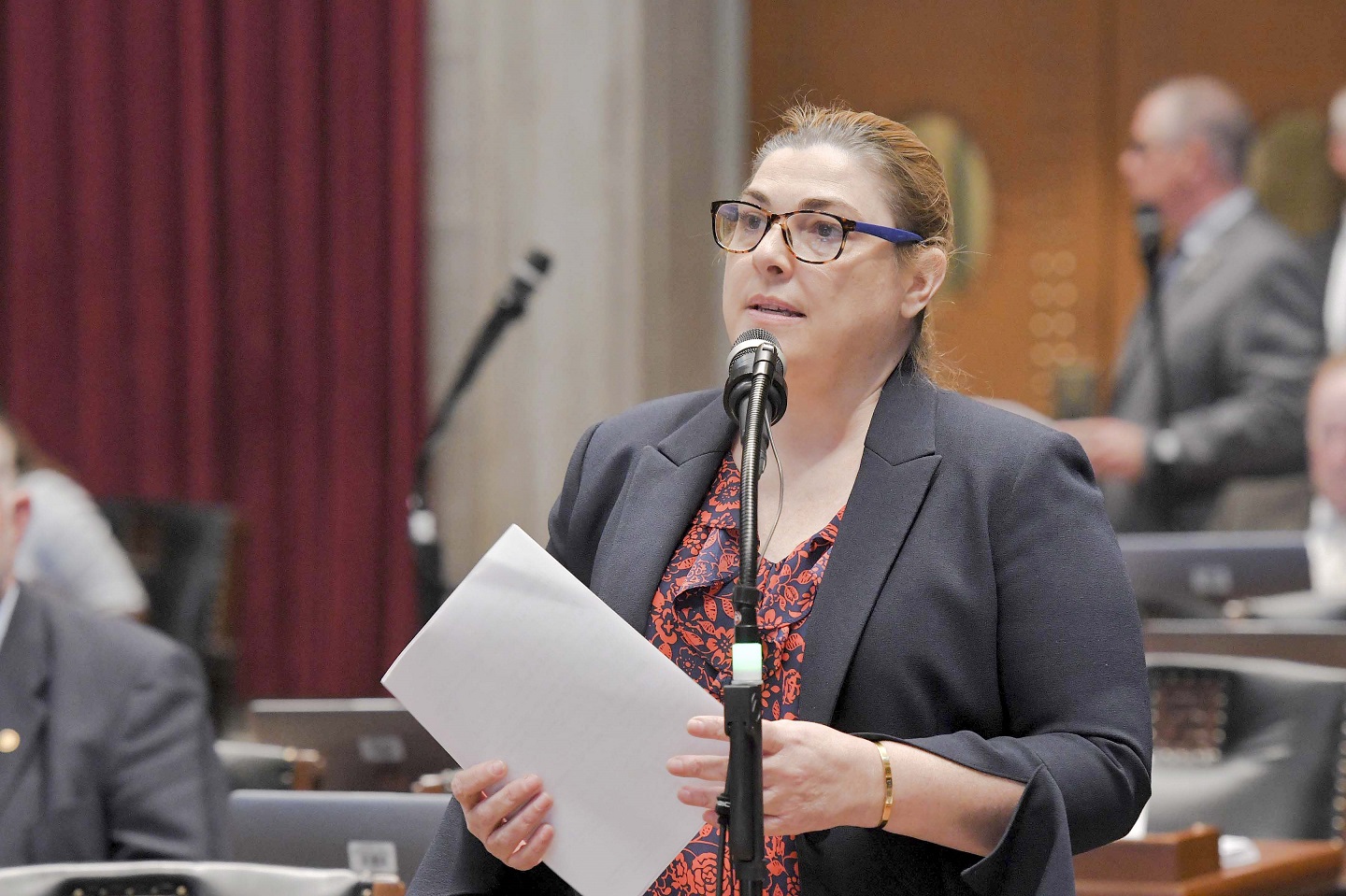Missouri House Speaker Dean Plocher spoke to reporters after the House Ethics Committee voted to dismiss a complaint against him:
VIDEO: House Democrats media conference
House Democrats spoke to the media and took questions after the chamber ended its work for the week:
VIDEO: House Republican media conference
Missouri House Republicans spoke to reporters and fielded questions after the close of legislative work for the week:
VIDEO: House sends Governor a Bill to Block Landfill near Kansas City-area Neighborhoods
The state House has voted to send to the Governor a bill that would prevent the construction of a landfill in a residentially zoned area near the Kansas City border.
House Bill 1751 would require approval of nearby municipalities within a one-mile radius of a proposed solid waste processing facility, demolition landfill, or sanitary landfill, in addition to already proposed restrictions on solid waste disposal areas.
The issue has been a top priority for several years for Pleasant Hill Republican Mike Haffner, who said today’s vote is a victory for the property rights of Missourians.
“I am thrilled that HB 1751 has cleared the Missouri House and is one step closer to becoming law,” said Representative Haffner. “This legislation is a victory for the people of Missouri, who have spoken loud and clear about the need to defend their property rights and preserve the well-being of their communities.”
Majority Floor Leader Jonathan Patterson, a Lee’s Summit Republican, expressed pride in the work of Haffner and other colleagues in the House and Senate in at last guiding this issue through the legislature.
“The business owners that worked to build this landfill are decent, well-intentioned people who want to better their community and provide a service. I commend their actions to work with the community, the City of Raymore, and the legislature to come to an amicable agreement to draw this issue to a close,” Patterson said.
The House voted 121-25 to send that legislation to the governor, who can sign it into law, veto it, or allow it to become law without any action.
House Republicans’ press conference
Missouri House Republicans spoke to reporters after the close of legislative work for the week:
House Democrats’ press conference
Missouri House Democrats addressed reporters and answered their questions after the close of legislative work for the week:
House Approves Plan to Reduce Wait Times, Costs for Healthcare
House lawmakers have voted to decrease the time Missourians must wait for some medical procedures, increase quality of and access to healthcare, and decrease costs.
Insurance entities require health care providers to seek prior authorization before performing some procedures before they will agree to cover those procedures. If House Bill 1976 becomes law, health care providers who reach a 90 percent approval rate for a given procedure over a six month period will then not have to seek prior authorization for the following six months.
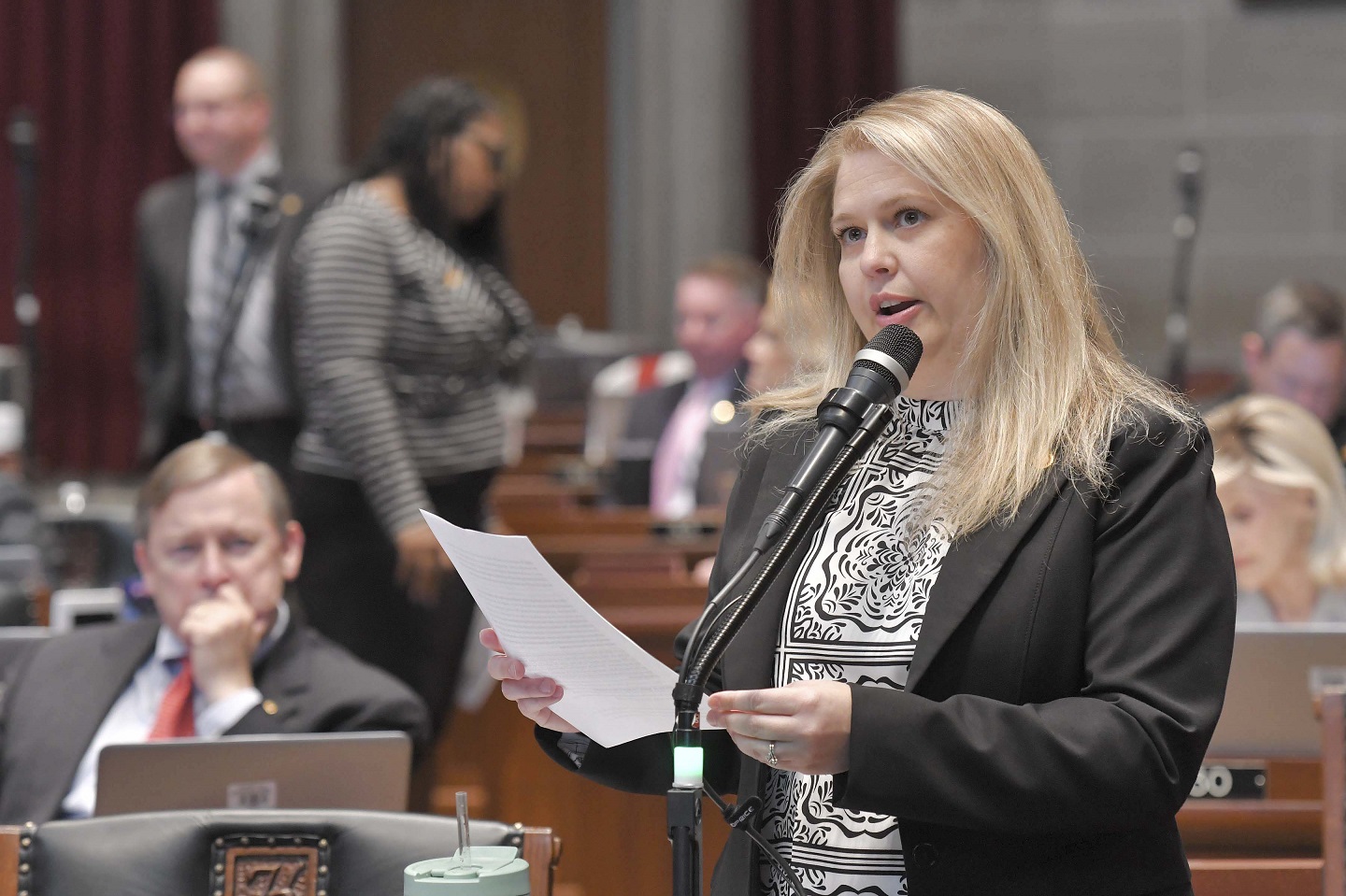
“Insurance companies and their prior authorization standards are getting in the way of health care for everyday Missourians,” said bill sponsor Melanie Stinnett (R-Springfield).
She said the passage of HB 1976 would mean “better access to care for patients and, potentially, decreased cost for patients, because the prior authorization process, itself, increases costs within the healthcare system.”
Stinnett said without knowing it, many patients have likely had a negative experience that involved prior authorization.
“Often, [patients] feel like it is something that the doctor hasn’t done or needs to do, but in reality it’s something that the health insurers lay over on top of what the health care provider has to do,” said Stinnett. “It’s a challenge that the health care provider has to deal with, but often the patient doesn’t realize who’s imposing it or where that’s coming from.”
“As someone who has spent hours and hours and hours trying to get preauthorization for patients that need physical therapy, I cannot support this enough,” St. Louis Representative Jo Doll (D), who has worked as a physical therapist, told her colleagues. “The process is burdensome, it takes hours and hours of – people that are there to provide patient care – takes them away from patients and makes them calling, writing, submitting countless forms to get visits approved.”
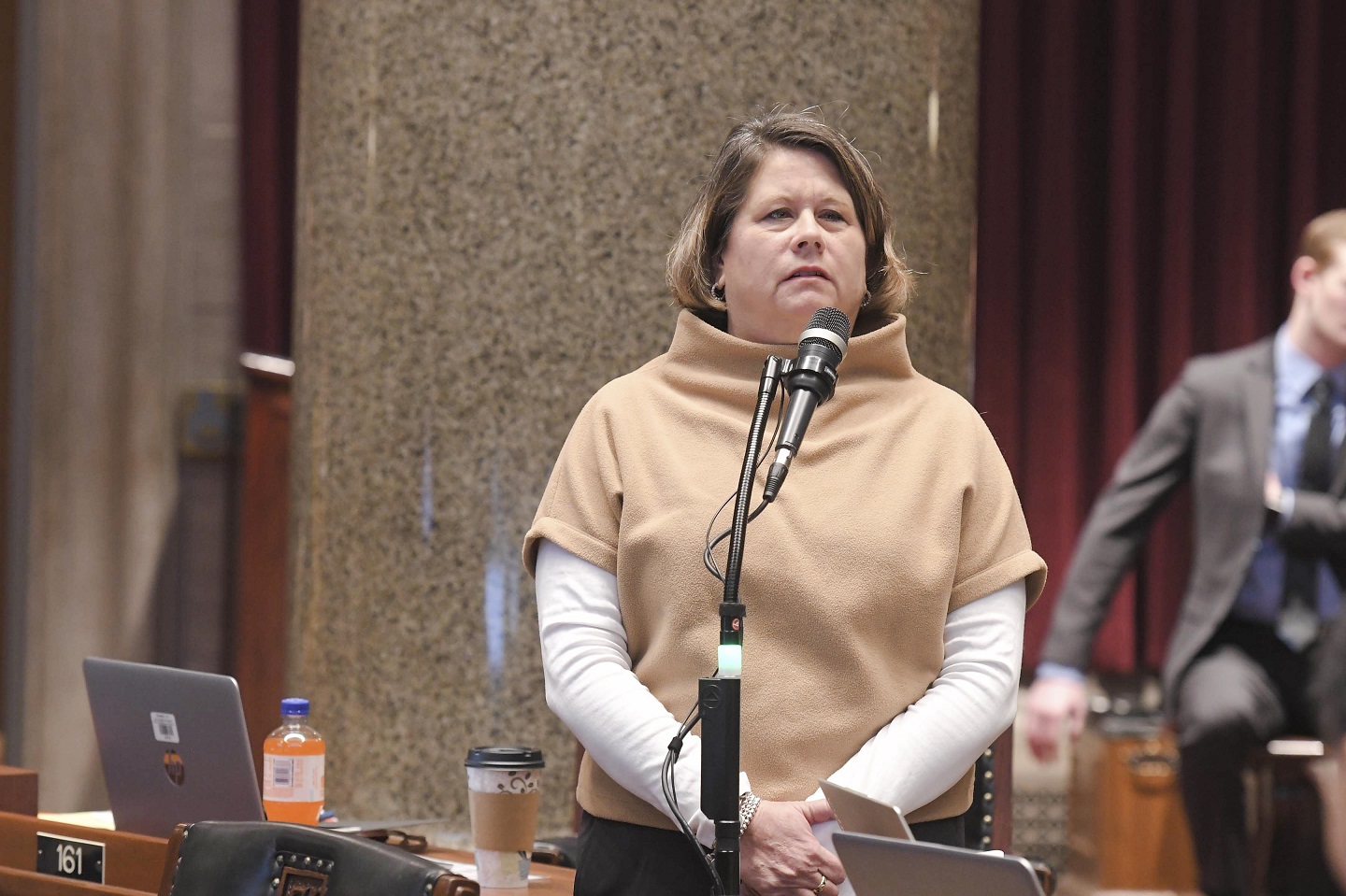
Health care industry workers and those patients who know of the prior authorization process view it as little more than “red tape” that drives up costs and slows care, and Representative Patty Lewis (D-Kansas City) agrees, and said some doctors report that the delays it causes lead to worse outcomes and even deaths.
The legislation made its way to the House after being approved by the Committee on Healthcare Reform. Chairman Kent Haden (R-Mexico) noted that panel gave it a bipartisan, unanimous vote.
“The only people that testified against it were the insurance people and [pharmacy benefit managers],” Haden said. “It is really good for all of our clients, all of our constituents. Not many bills we see effect everybody in the House and all their constituents. This bill will effect virtually everyone and their constituents immediately. It’s a great bill.”
Stinnett told her fellows the prior authorization process gives power to insurance companies and leaves providers fighting to get the best care and outcomes for their patients. Her legislation aims to change that, and to allow providers to focus more on patients’ needs rather than what insurers will allow.
The House voted 146-6 to send that legislation to the Senate.
House Anti-Bullying ‘Childhood Hero Act’ gets Unanimous Passage to Senate
A House bill passed this week aims to keep students who stand up to bullies in Missouri from being punished along with those bullies.
“Our goal is to make sure that a victim of violence, an immediate act of violence, isn’t automatically suspended from school for being involved. It also allows a teacher to act in good faith to help a victim of immediate violence,” said Representative Tricia Byrnes (R-St. Charles), the sponsor of House Bill 1715, the “Missouri Childhood Hero Act.”
Byrnes said the language is meant to, “address some of the bullying and violence that we have seen in our schools across the state, and quite honestly in schools across the country, and I’m very proud that [we], in a bipartisan fashion, have come together to stand up for kids.”
“This bill is very timely and it is appropriate,” said Representative Raychel Proudie (D-Ferguson). “I believe this bill prevents victims of bullying and physical violence from being victimized twice, both by the altercation and by being suspended pending investigation.”
The Act would require that public and charter schools have anti-bullying policies and that those policies meet certain requirements. It would restrict the use of “zero-tolerance” provisions that would punish a victim acting in self-defense, and require that administrators considering punishments consider a statement from any student who engaged in self-defense.
The bill specifies that a school employee or volunteer who intervenes in an incident of bullying or other violence is immune from liability when following certain procedures, and that a district or charter school is immune to civil liability for disciplinary actions if following specified procedures.
The bill would also extend school districts’ efforts to counsel and educate victims of bullying to those students who engage in bullying. That provision was added by Marshfield Representative John Black (R), the sponsor of House Bill 2630, which has been paired with HB 1715.
“As was mentioned in committee by one of the committee members, ‘hurt people hurt people.’ This tries to address the situation by addressing both the student being bullied and to try to get help to the student doing the bullying,” Black told his colleagues.
“As a teacher and school counselor myself, we are professionals, we are practitioners, and in as much, should have to answer for making sure that we are keeping eyes on children, and making and cultivating a safe learning environment for children,” said Proudie, who is a certified teacher and school counselor.
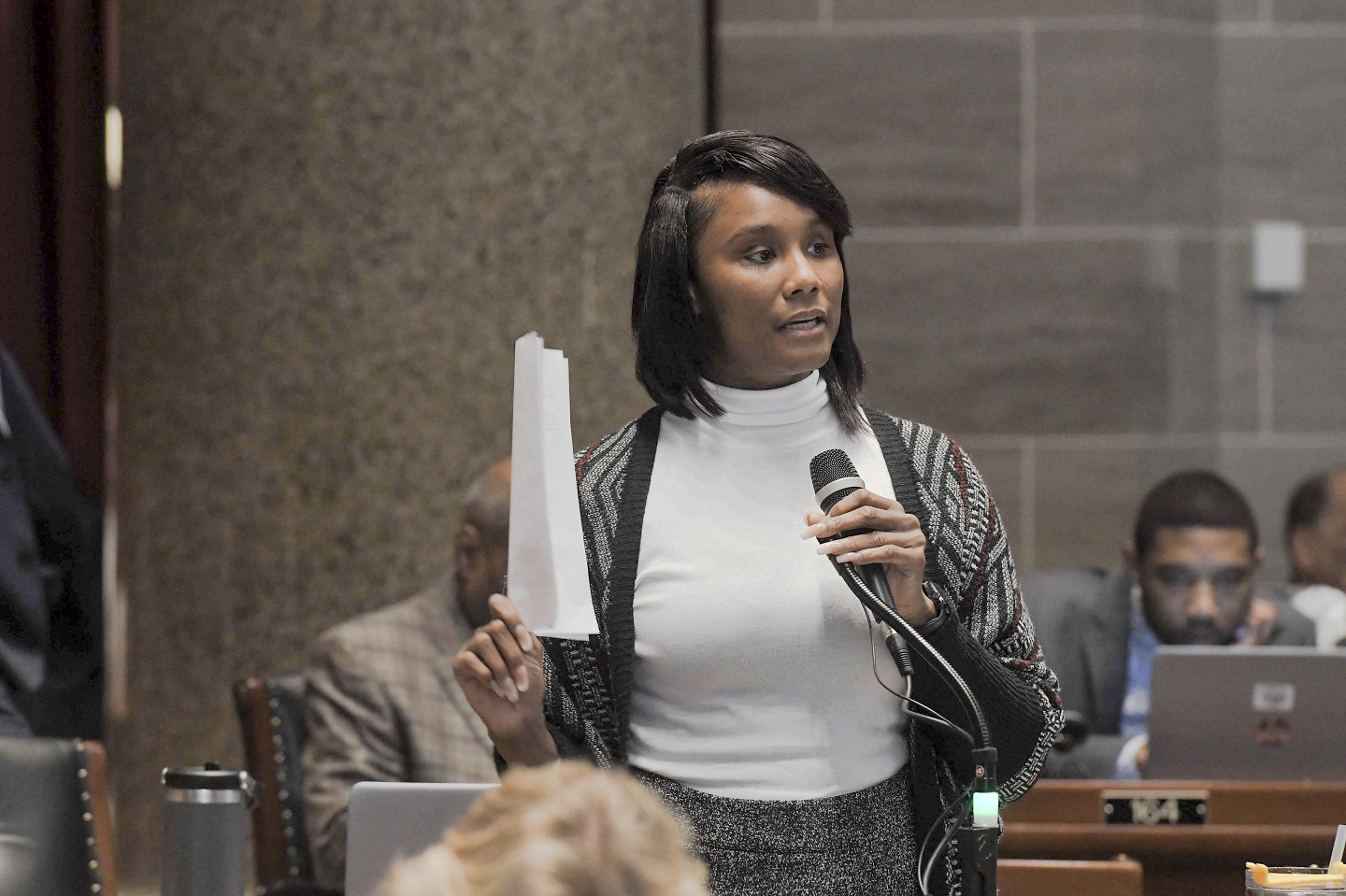
Regarding investigations, the legislation would shorten the time in which a district employee who witnesses a bullying incident must report it from two days to one, and require that the report be in writing.
Results of investigations would have to be presented to all involved students and include a description of any interventions, initiatives, techniques, or disciplines. In cases in which an investigation finds that bullying occurred the parents of the instigator must be notified. If the finding is that the incident rose to the level of 2nd degree harassment, law enforcement would be notified, or in cases involving a student younger than 11, the state Children’s Division would be notified.
“I think we’re all familiar with the scenario where two kids get into a fight and they’re both kicked out of school, and that’s what we’re trying to prevent, and I think that’s what this bill prevents,” said Representative Ian Mackey (D-St. Louis).
The House voted 150-0 to send that bill to the Senate.
House Honors Creator of State Flag with Induction into Hall of Famous Missourians
House Speaker Dean Plocher and the Missouri House of Representatives are honored to announce the induction of Marie Watkins Oliver into the Hall of Famous Missourians.
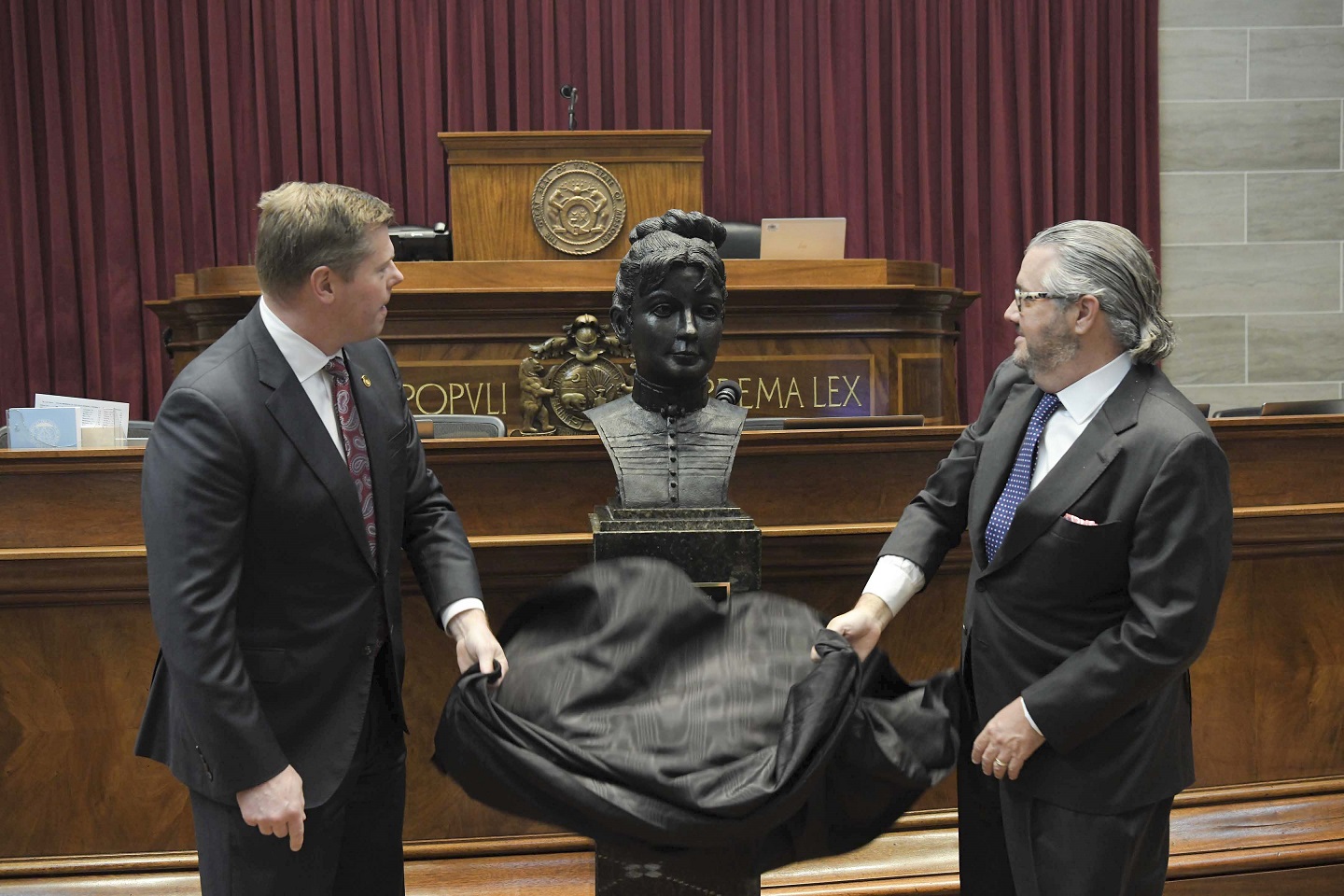
Marie Watkins Oliver, hailed as the “Betsy Ross of Missouri,” played a pivotal role in crafting the Missouri State Flag. In 1908, Oliver, the wife of Senator Robert Burett Oliver and a resident of Cape Girardeau, headed the committee formed by the Daughters of the American Revolution and took on the challenge of creating an official state flag.
Her resulting masterpiece integrated red, white, and blue, symbolizing Missouri’s federal ties while embodying local autonomy and self-governance. The central coat-of-arms denotes Missouri’s geographical significance, while twenty-four stars on the blue band mark the state’s place as the twenty-fourth state in the Union. Each color carried profound meaning: blue for vigilance, permanency, and justice; red for valor; and white for purity.
Despite setbacks, such as the loss of her original flag in a fire, Oliver’s resilience triumphed. Following numerous attempts to secure legislative approval, the Oliver Flag was officially adopted as the state flag on March 22, 1913. The silk flag she crafted stands proudly in Jefferson City, serving as a timeless testament to Oliver’s lasting legacy.
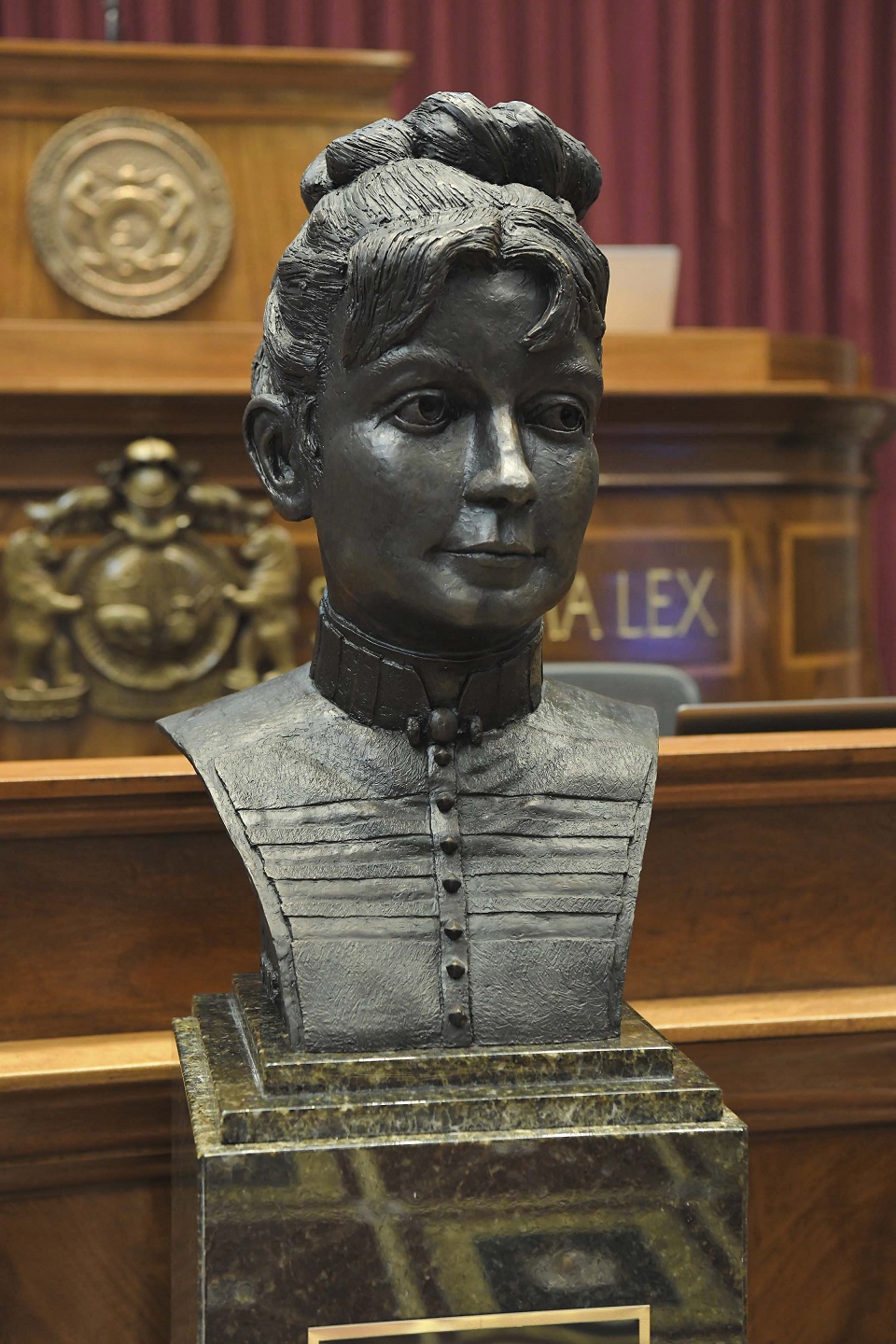
In recognition of her efforts and impact on the Show-Me State, Speaker Plocher presented the bust for Oliver as the latest member to join the Hall of Famous Missourians.
“In honoring Marie Watkins Oliver’s induction into the Hall of Famous Missourians, we celebrate not just a woman of historical significance, but a visionary who stitched together the very fabric of our state’s identity,” House Speaker Dean Plocher, R-Des Peres, said. “Like the stars on our flag, her contributions shine brightly, reminding us of the resilience and creativity that define Missouri. It’s a privilege to recognize her pivotal role in shaping our history and heritage.”
House Democrats’ weekly press conference
Missouri House Democrats spoke to reporters after the close of legislative work for the week:
